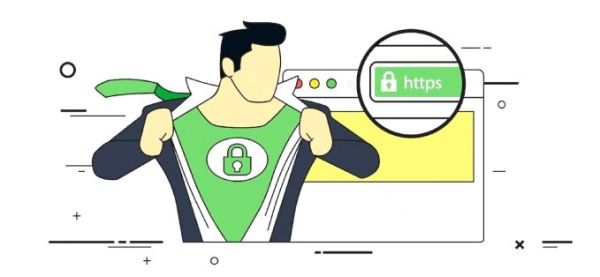Is SSL important? Do I need SSL? Do I need to fasten the seatbelt while driving? Do I need to put on protective eyewear while watching the solar eclipse?
If you own a website or a blog in 2020, you need SSL. It’s as simple as that. An SSL certificate is no longer a luxury; it’s an out-and-out necessity.

Benefits of SSL
Here are the five key benefits of using an SSL certificate.
1. SSL Protects Data
The core function of an SSL certificate is to protect server-client communication. On installing SSL, every bit of information is encrypted. In layman’s terms, the data is locked and can only be unlocked by the intended recipient (browser or server) as no one else can have the key to open it. While dealing with sensitive data such as IDs, passwords, credit card numbers, etc., SSL helps you protect against the mischievous army of hackers and skimmers
2. SSL Affirms Your Identity
The second primary task of an SSL certificate is to provide authentication to a website. Identity verification is one of the most important aspects as far as web security is concerned. There is no doubt about the fact that the internet is increasingly deceptive. In 2009, a guy traveled 400 miles to meet a girl he had met on Facebook, only to discover that he was being duped by two guys who supported a rival sports team. However, not all such stories are funny. There have been cases in which people have lost thousands of dollars on fake websites.
When you want to install an SSL certificate, you must go through a validation process set by an independent third party called a Certificate Authority (CA). Depending on the type of certificate, the CA verifies the identity of you and your organization. Once you have proven your identity, your website gets trust indicators vouching for your integrity. When users see them, they know who they’re talking to.
3. Better Search Engine Ranking
In 2014, Google made changes to its algorithm in order to give the upper hand to HTTPS-enabled websites. This has been evident in various studies conducted by SEO experts around the world. One such study conducted by Brian Dean, founder of Backlinko.com shows a strong correlation between HTTPS and higher search engine rankings.
Who doesn’t want to be on Google’s first page, right?
4. SSL Helps You Satisfy PCI/DSS Requirements
If you accept online payments, you must know a thing or two about PCI/DSS requirements. To receive online payments, your website must be PCI compliant. Having an SSL certificate installed is one of the 12 primary requirements set by the payment card industry (PCI).
Therefore, SSL is essential—whether you want it or not.
5. SSL Improves Customer Trust
Apart from encryption and authentication, SSL certificates are vital from a customer trust point of view. The easy to identify signs inform the users that the data they send will be secured. Once they know that you’re a legitimate entity, they’re far more likely to do business with you or even revisit your site.
Google Made SSL Mandatory in 2018
To give a safer web browsing experience from 2018 onwards, Google decided to flag the websites which do not have an SSL/TLS Certificate installed. If anyone fails to comply with this rule, all the popular web browsers used around the globe like Google Chrome & Firefox Mozilla will punish them by giving a warning message of ‘Not Secure’ on the URL bar. The website may even get blocked to load on the browser. No matter which website you have, from a personal blog to any shopping portal, SSL is mandatory.
Wrapping Up
How safe would you feel if your browser warned you about a website being “not secure”? Because that’s what will be shown in Chrome if you don’t have an SSL certificate. Do you want that? Of course you don’t.
We can help. Let’s get your SSL on! Contact I-Evolve today at (855) I-EVOLVE or info@i-evolve.com.








